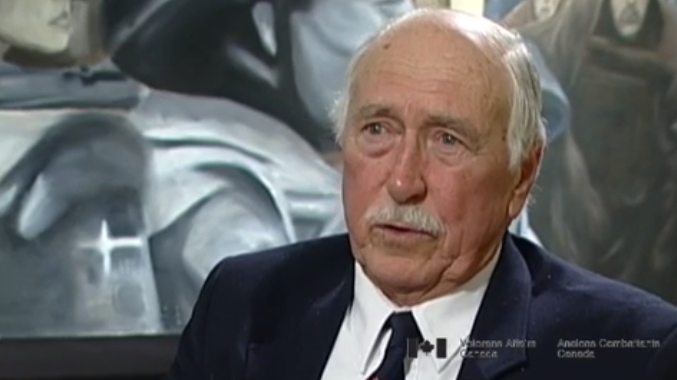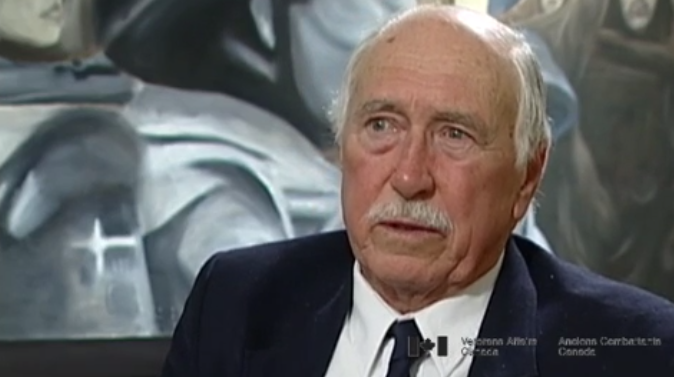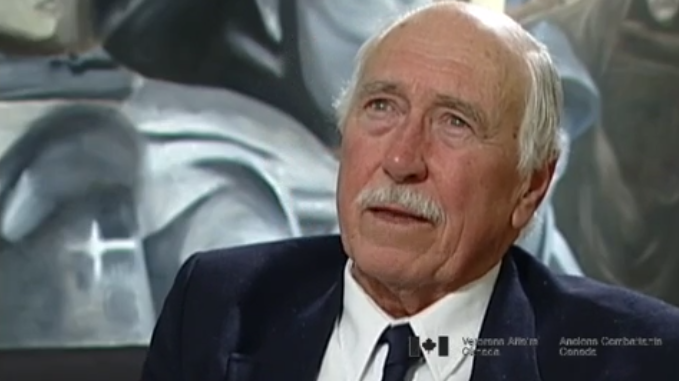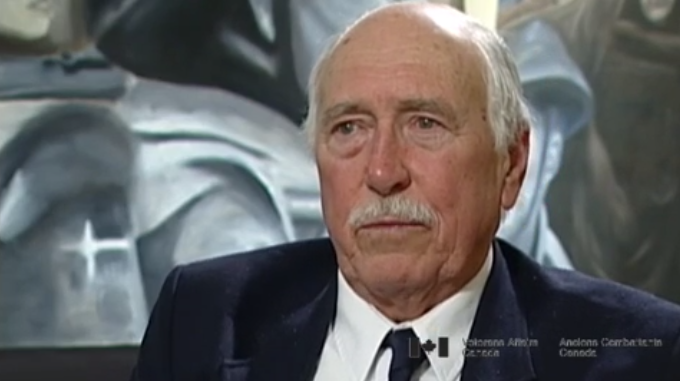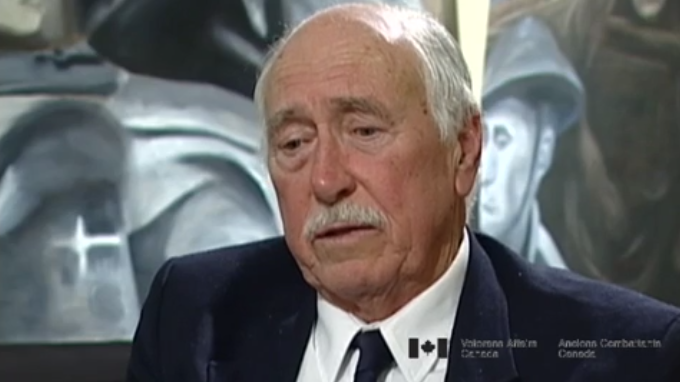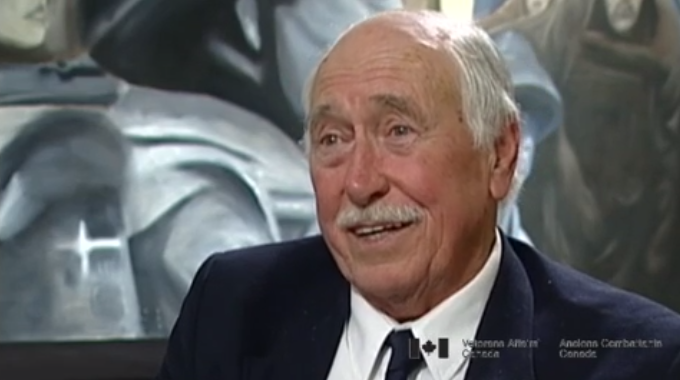Teamwork
Heroes Remember
Teamwork
Transcript
Description
Mr. Garrison describes the interdependence and diversity of an air crew.
Glenn Garrison
Mr. Garrison was born in 1925 in Sarnia, Ontario. His family moved to Blackville, Ontario, in 1930. Although his father was a boiler maker with the Canadian National Railroad, Mr. Garrison's family was poor. When old enough, he went to work in a factory, then enlisted in 1943. He received his Air Gunner training in Lachine, Quebec, then shipped overseas on the Mauritania. He was a member of 428 Squadron. The Mid-Upper and Tail gunner positions were extremely vulnerable and he was fortunate to survive many bombing missions over France and Germany. These missions included the bombing of submarine pens in Southern France and the industrial area of the Ruhr Valley. At the age of 18, Mr. Garrison returned to Canada with 43 missions to his credit. At 19, he became a flying instructor at Fingor, then CO of the Turrets and Gunnery school at Mountain view. Mr. Garrison and his wife live on a farm in Sarnia. He has his own air plane and is still flying.
Meta Data
- Medium:
- Video
- Owner:
- Veterans Affairs Canada
- Duration:
- 03:09
- Person Interviewed:
- Glenn Garrison
- War, Conflict or Mission:
- Second World War
- Battle/Campaign:
- Bomber Command
- Branch:
- Air Force
- Units/Ship:
- 428 Squadron
- Rank:
- Flying Officer
- Occupation:
- Mid Upper / Tail Gunner
Related Videos
- Date modified:



